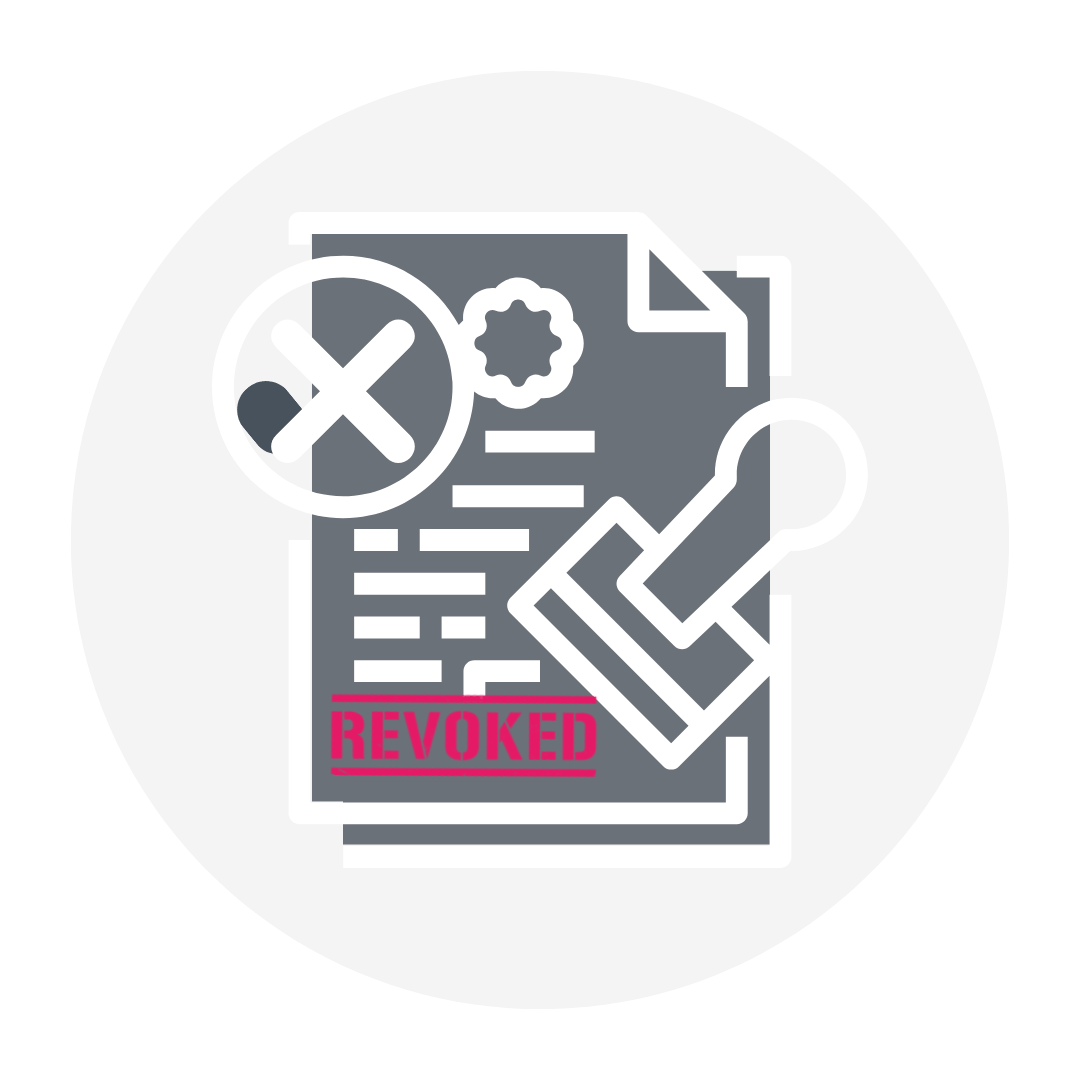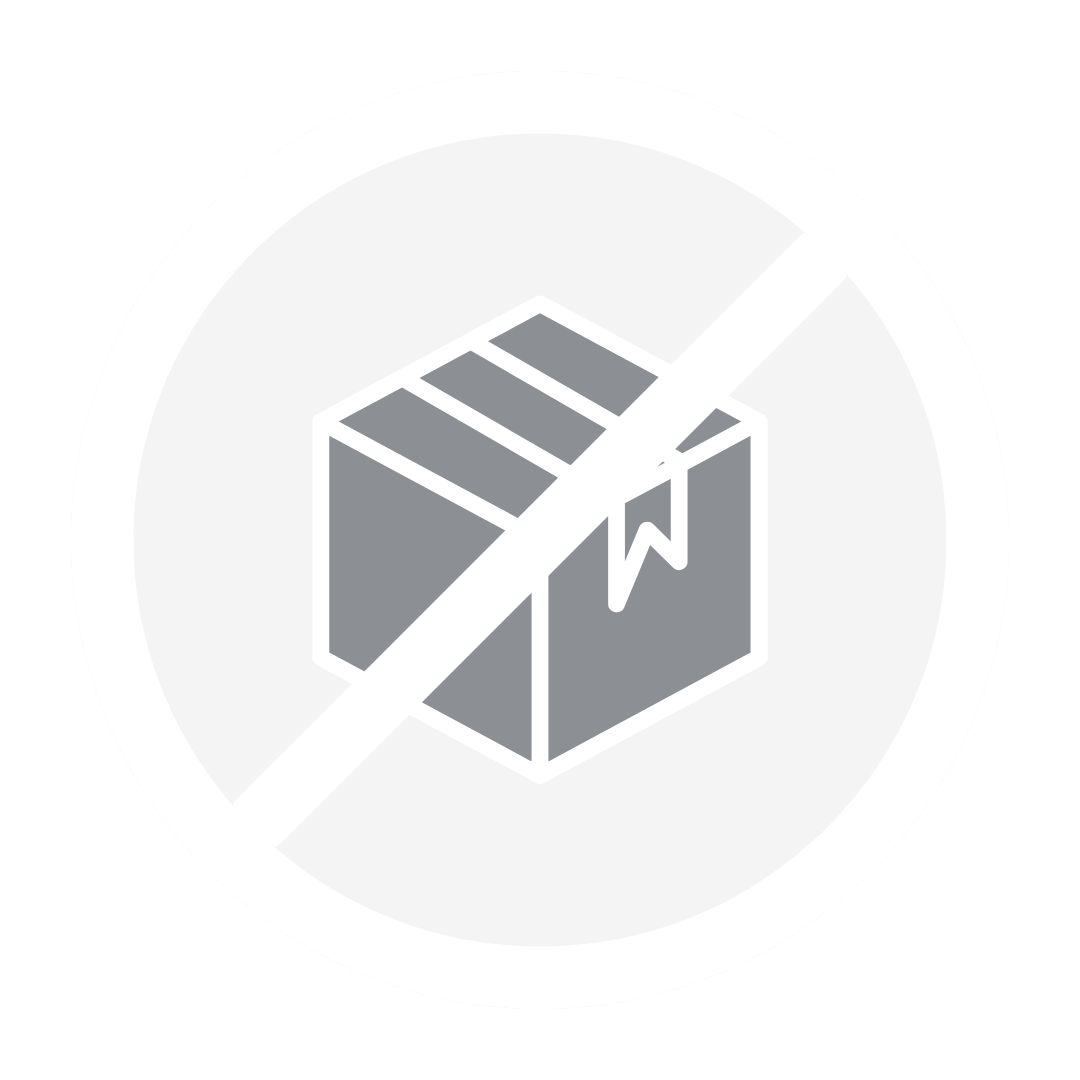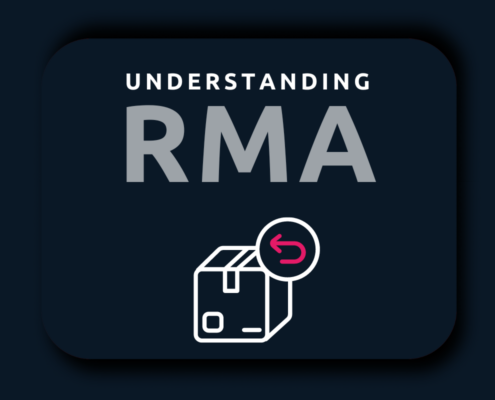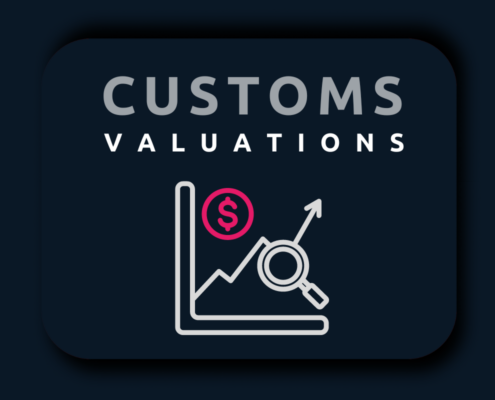*Updated: 27 June 2024
Reading Time: 7 minutes
With ever-changing rules and requirements, navigating the complexities of global trade regulations can be challenging. Our aim is to provide clear and current information to help businesses avoid costly mistakes when importing and exporting. Whether you’re a seasoned exporter or new to the world of international trade, our FAQ-driven approach will provide the guidance you need to ensure compliant and successful global operations.
What is Trade Compliance?
Trade compliance is the process of adhering to local laws, regulations, and rules when importing and exporting goods and services across international borders. It’s an umbrella term that encompasses different types of compliance requirements including:
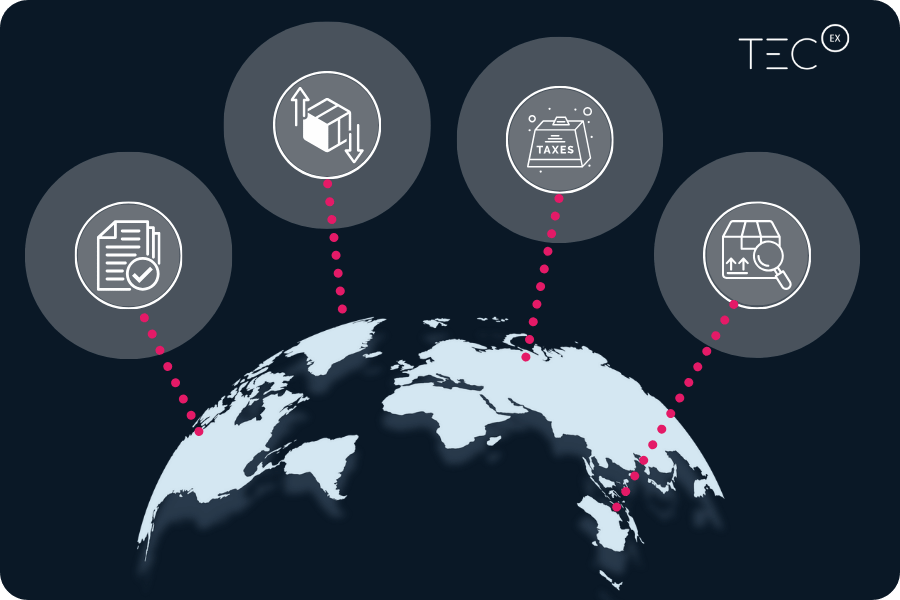
Each country has its own trade regulations and compliance requirements that includes permits and special licenses to ship. For example, countries such as India and Bangladesh have restrictions placed on wireless tech goods, while other countries like Brazil and Nigeria have restrictions on second-hand IT goods.
Not only that, but there are also different regulations depending on the industry and type of goods. For instance, regulations will differ for technology, aerospace, industrial machinery, and even SWAG material.
Why is Trade Compliance Important?
Trade compliance matters because it sets the standard for trade practices worldwide. Trade compliance ensures:

Goods meet local rules, regulations and requirements.

Countries can be confident that consumers are protected, goods are ethical, and financial laws are adhered to.

Your business doesn’t incur any fines, penalties, or even imprisonment.

The prevention of shipping delays, as failure to comply can cause stuck shipments, ultimately leading to dissatisfied customers.
What Does Trade Compliance Involve?
Trade classification
This is the classification of goods entering or exiting a country. It is essential for customs compliance, working out duty rates, determining the origin of goods, and meeting other customs clearance requirements.
Typically, the Standard International Trade Classification (SITC) is used. This is managed by the United Nations Statistics Division and allows for comparison of product classifications across countries.
Customs Management
Customs management refers to the practices companies adopt to ensure their imports and exports comply with customs regulations.
If anything goes wrong at customs, you will need a plan to meet all the necessary requirements and laws. This requires a lot of expertise, especially if you’re importing and exporting into multiple countries. If you hire a customs compliance specialist, you can be confident that all these requirements are met.
Incoterms
Incoterms which are published by the International Chamber of Commerce (ICC) clarify the responsibilities of buyers and sellers in regard to importing and exporting. They’re internationally recognized, and provide a common set of rules across different countries. Learn more about this in our incoterms guide.
Import Licensing
Businesses need to check whether they need certain licenses when importing. For example, there may be licenses and permits you need specifically to import technology hardware. Without this, you may be liable for fines, stuck shipments, or even the complete destruction of the goods. Consulting with an expert IOR can clarify any concerns you might have about import licenses and trade compliance.
Export Controls
Equally, there is legislation for exporting that international traders need to follow. As a business, you need to classify your goods against the correct laws and ECCN numbers to determine the necessary export licenses and highlight any restrictions associated with your shipment.
Preferential Origin
Goods coming from countries with a special trade agreement can enjoy reduced rates of duty. There are specific rules to follow based on preferential origin and, on the flip side, rules for goods with non-preferential origin.
Screening
This process involves screening restricted goods by cross-referencing customer, transaction, employee, supplier, and OEM data to ensure compliance. The list of embargoed and dual-use goods and countries changes frequently, making it challenging to stay updated. TecEx manages these changes in the international trade market on your behalf.
Valuation
All goods need to be valued accurately, so they are imported at a fair rate and the destination country gets the correct amount of tax and duties. Valuations needs to be defendable if questioned. To combat this, you can follow an approved methodology for valuation, otherwise you may be fined or penalized.
Who Has to Comply with Trade Compliance?
Any business engaged in importing or exporting goods must adhere to international trade regulations. While compliance is mandatory for all sectors, certain industries, such as medical and technology, face more stringent requirements due to the sensitive nature of their products. Regardless of the industry, all businesses must ensure compliance with relevant laws and standards to avoid penalties, disruptions, and legal issues.
Who is Responsible for Trade Compliance?
As a business, you are accountable for ensuring trade compliance. This involves conducting thorough research to understand and adhere to country-specific and industry-specific requirements. Non-compliance with these regulations falls directly on your shoulders, potentially leading to significant consequences.
However, as we know how taxing compliance can be for anyone who isn’t an expert, you can delegate these responsibilities by hiring a customs compliance specialist. Through our Importer of Record (IOR) service, TecEx can manage all aspects of trade compliance on your behalf, ensuring that your operations meet all necessary legal and regulatory standards.



